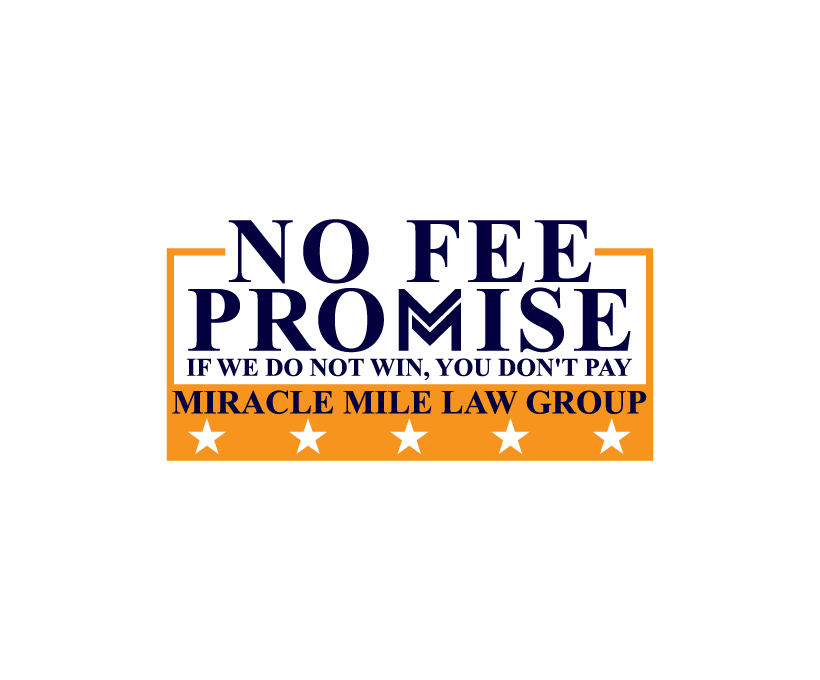Employer Denied Reasonable Accommodations
This is personal for us. We know the difference between right and wrong and have based our entire careers on reminding others of that distinction.
Employer Denied Reasonable Accommodations – Top Rated Disability Lawyers
Employers have a duty to provide reasonable accommodations to employees who have a disability covered under the Fair Employment and Housing Act (FEHA). However, what is “reasonable” under the law is not defined by any bright-line rule. In fact, what is reasonable depends on the nature of the employee’s job with the employer. If an employer denied reasonable accommodations, you as an employee may be entitled to monetary compensation for your pain and suffering.
What is a reasonable accommodations?
A reasonable accommodation is any change to the work environment that can allow an employee with a covered disability to perform the essential functions of his or her job. The employee must be able to perform the essential functions of his or her without accommodations. However, if reasonable accommodations would “level” the playing field for the employee to perform those job duties, the employer must provide them. If the reasonable accommodations places an undue burden on the employer or poses a threat to the safety of other employees (or the employee himself), then the employer is not required to provide them.
Examples of reasonable accommodations include:
- Providing personal assistants or attendants to help a qualified individual with a disability perform an essential job function;
- Making existing job facilities used by employees readily accessible to and usable by disabled individuals (this may include providing accessible break rooms or restrooms, or reserving parking spaces)
- Changes in the job structure
- Alternative work schedules that include modifications in time required to be at work
- Relocation to a vacated position for which the employee is qualified
- Providing equipment or devices to employees
- Modifying examinations, training materials or policies
- Giving assistive equipment
- Extended paid or unpaid leave to tend to a disability
- Permitting the disabled employee to bring assistive animals to the job
- Providing training that was not previously provided
- Permitting a change of in the nature of the essential function of the job
- Changing an employer policy without placing an undue burden on the company
- A work from home schedule to the employee
What are essential functions of a job?
Essential functions of a job are dependent on the particular employer. However, the following can help guide employees on determining what an essential function is:
- Written job descriptions prepared before advertising or interviewing the job
- How much time the employee spends performing the job duty
- The consequences of not having the employee perform that job duty and how it would affect the company
- Work experiences of past employees who had the same job
- Reference to the job in prior performance reviews.
While this list is not exhaustive, it provides a starting point for determining essential functions.
What is considered a disability under California law?
In California, an employee is considered “disabled” if they can prove one of the following:
- The employee has physical or mental deficiency that limits a major life activity
- Has a past of an impairment
- Is perceived as having an injury or impairment
Any impairment that limits a major life activity, which includes work, is considered a disability.
Examples of disabilities under California law include:
- Emotional or mental illnesses, such depression or generalized anxiety disorder
- Cancer
- Pregnancy
- Broken bones, limbs, or tissue
- Autism spectrum disorders
- Lyme Disease
- Deafness
- Traumatic Brain Injury (TBI)
How do I ask my employer for reasonable accommodations?
In order to receive accommodations, the “interactive process” must be initiated. Prior to asking your employer for accommodations, there are steps you can take to ensure a smooth and easy process. These include:
- Provide your employer with written doctor’s notes stating all of your restrictions and the exact accommodations you need.
- Provide your employer with the doctor’s notes in writing and keep records of all the times you submitted it to them. If your employer denied reasonable accommodations, do not lose faith.
- Engage in a transparent discussion about how to come to a resolution. As always, be polite.
- If your employer denied reasonable accommodations, immediately contact a lawyer
If your employer denied reasonable accommodations, we offer free consultations to help you understand your rights.
The lawyers at Miracle Mile Law Group are specially trained in handling failure to accommodate cases. If you were unfairly denied accommodations, or if your boss is unreasonably denying you the reasonable accommodations you are legally entitled to, contact a Los Angeles disability discrimination attorney today. These cases are very time sensitive so give us a call at (888) 244-0706 or contact us online for a FREE case evaluation. Remember, we do not take a single dollar unless WE WIN!




